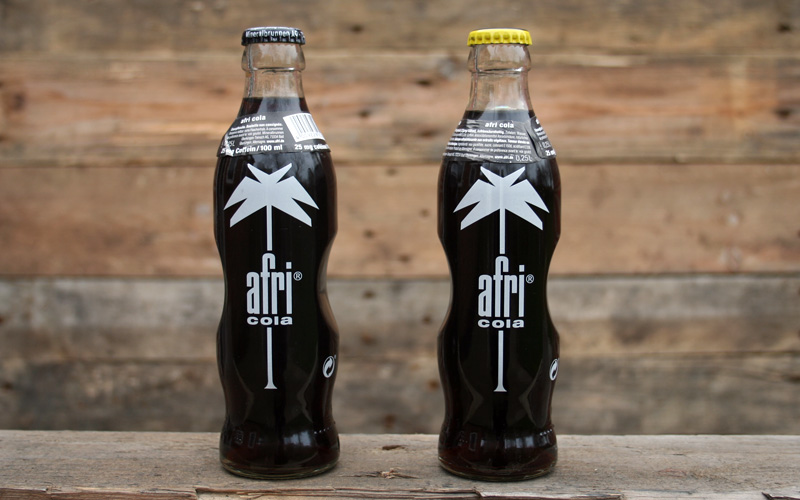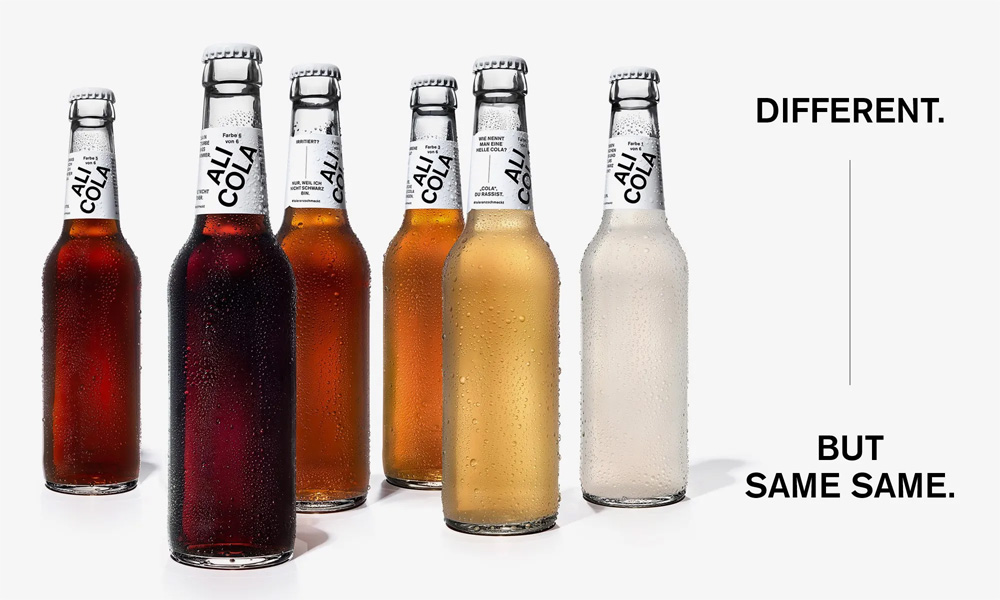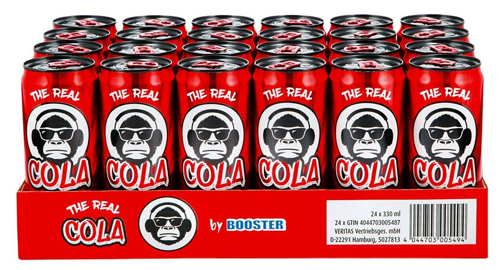afri cola
German Afri Cola was launched in 1931 in an attempt to steal market shares from the dominating Coca-Cola. In the 1950s it was a symbol of the successful recovery and rebuilding of West Germany following WWII.
Over the next decades, however, the market shares in Germany declined to less than 1 % in the 2010s.
Afri Cola is known for its high level of caffeine at 25 mg per 100 ml, which is 1.6 times as much as a classic Coca-Cola.

The iconic glass bottle was designed in 1962.
The palm tree has been part of the Afri Cola logo since 1931.
Afri Cola was initially produced by F. Blumhoffer Nachfolger GmbH in Cologne. The company was founded in 1864 and made essences for various beverages. From around 1900 they were entirely focused on producing lemonade.
In 1931 Karl Flach took over as new CEO of the company. He was inspired by the success of Coca-Cola and started production of a caffeinated soft drink that could compete with the American market leader.
The name derives from its content of “African cola-nuts” and is stylized afri cola.
From the 1960s the sales continued to decline and in 1998 F. Blumenhoffer Nachfolger gave up the production of Afri Cola and sold all rights to Mineralbrunnen Überkingen-Teinach AG.
In the late 1990s there was a general retro trend in Germany and the new owners saw the opportunity to relaunch Afri Cola in 1999. The caffein level was reduced to 10 mg and the sugar level increased to that of the market leaders.
These changes, however, were not well recieved by the consumers and led to criticism. In 2006 the caffein level was increased to the original 25 mg/100 ml. In 2015 the classic Afri Cola was renamed afri cola 25 and got a yellow cap. At the same time a new 10 mg caffein version was intoduced under the name afri cola with a black cap.
In Kenneth’s collection
250 ml bottle (exp. 20 January, 2016).
250 ml bottle with a yellow cap promoting the 25 mg caffeine per 100 ml in the Afri Cola (exp. 2 November, 2016).





